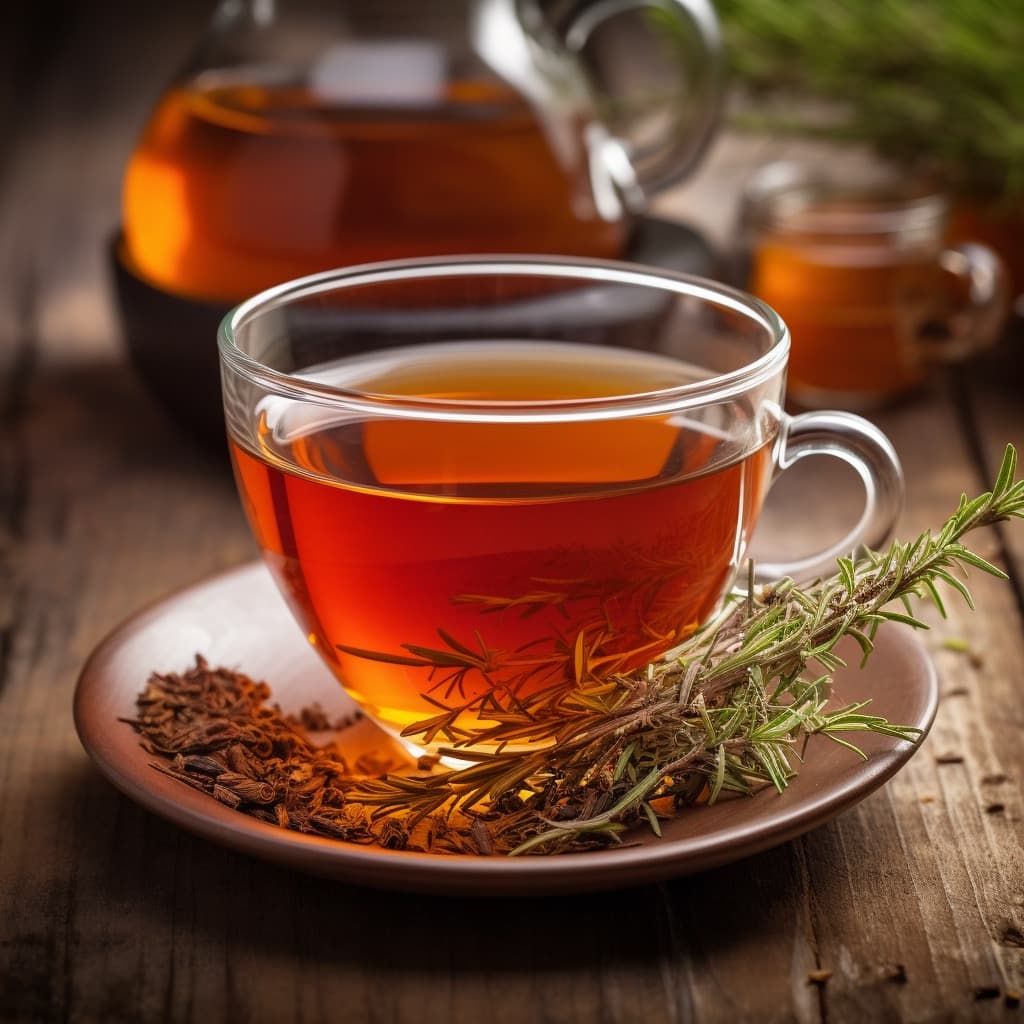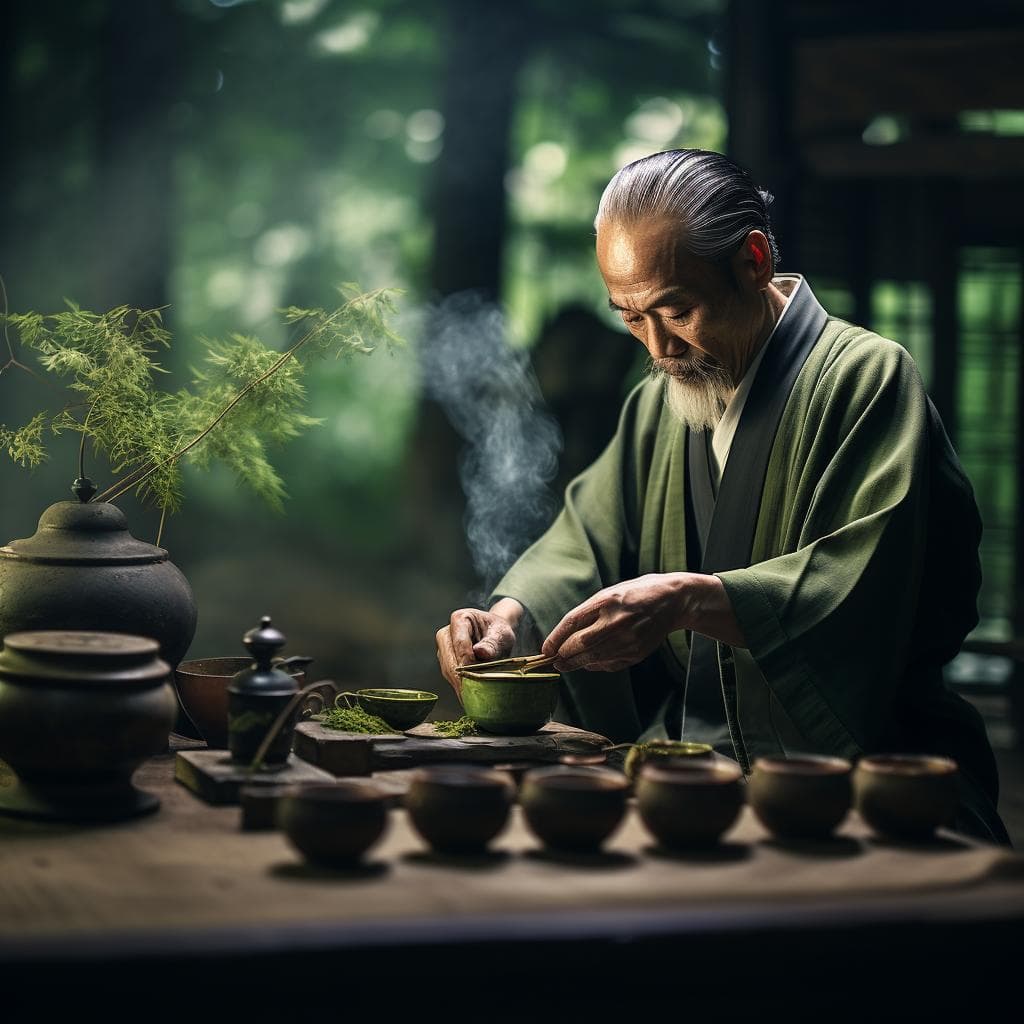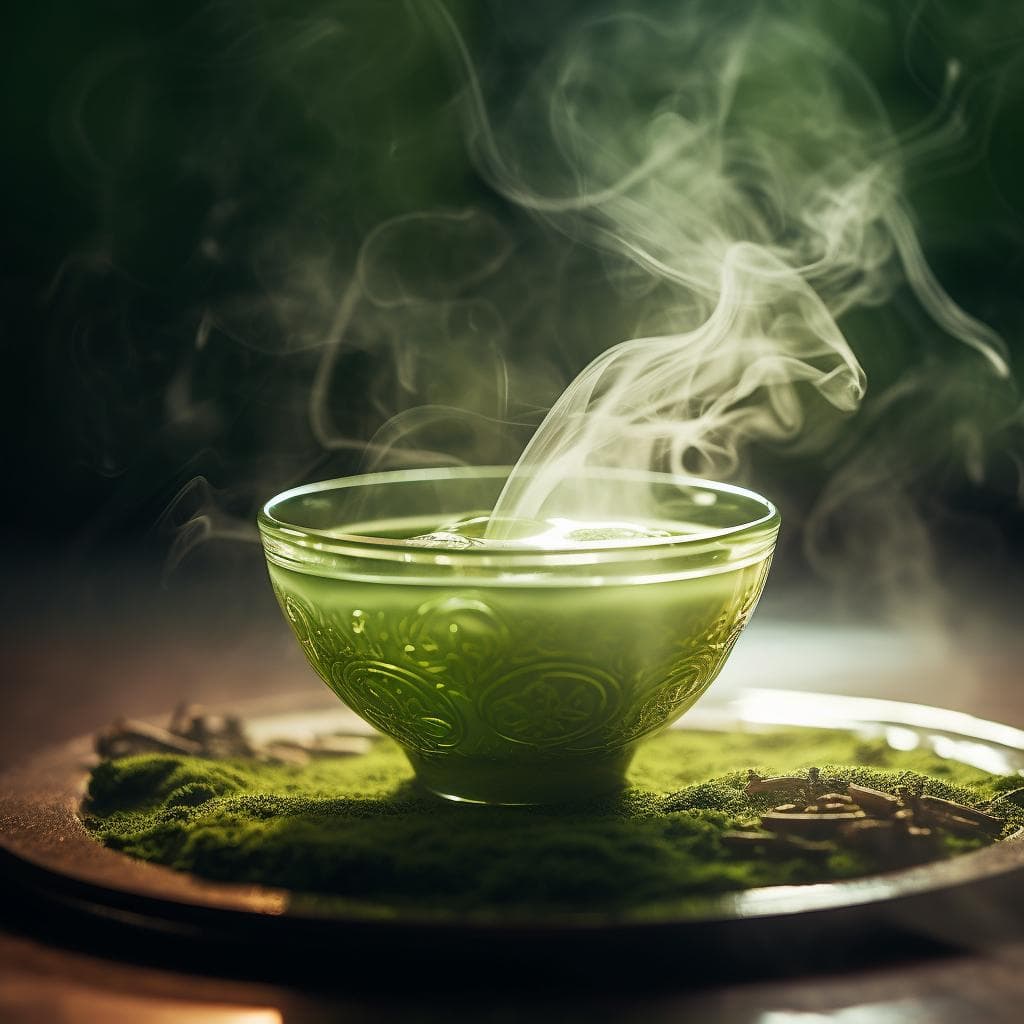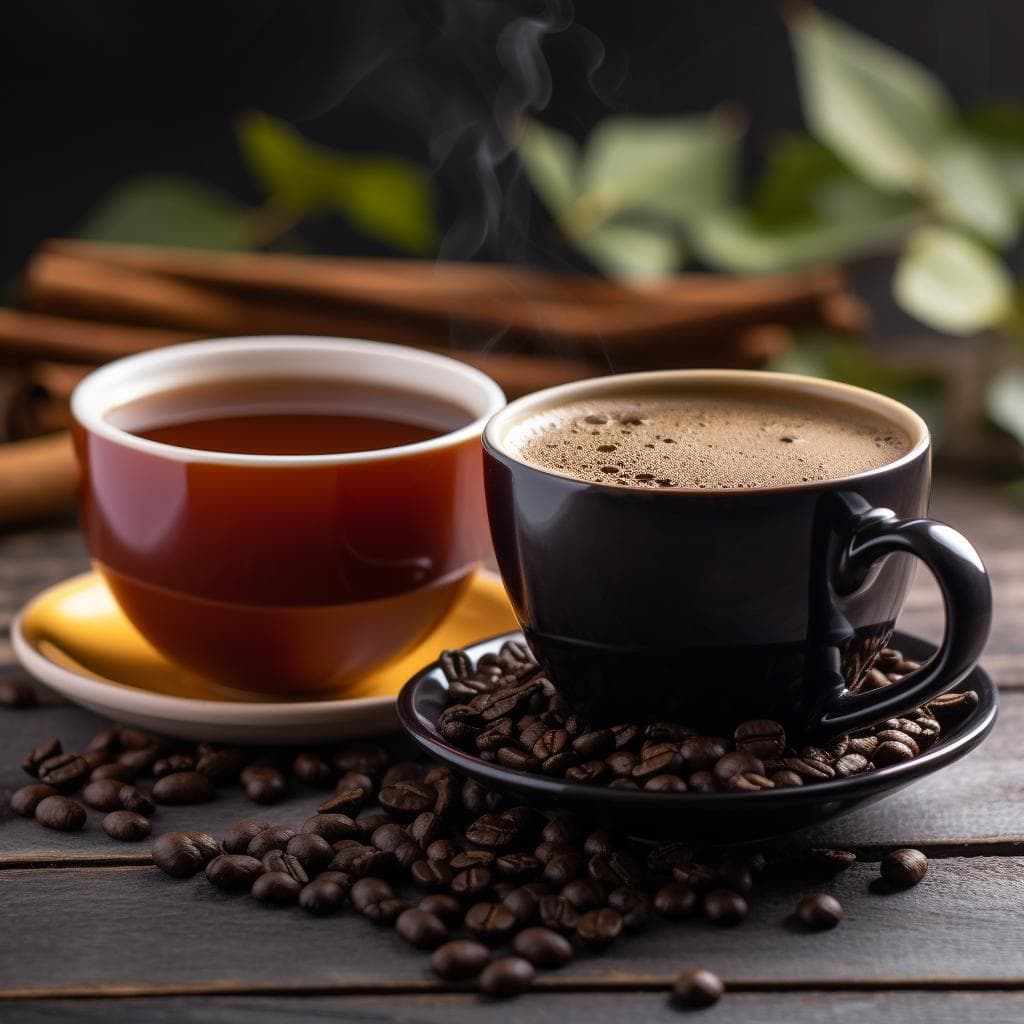Herbal tea has gained tremendous popularity in recent years as people seek natural and flavorful alternatives to traditional tea. These delightful infusions are made from various plants, herbs, flowers, and spices, each offering unique flavors and potential health benefits. In this article, we will explore the different types of herbal tea and delve into their specific benefits. So, grab a cozy cup of tea and let's embark on a journey through the fascinating world of herbal infusions.
Introduction
Embracing the World of Herbal Tea
When it comes to enjoying a soothing and aromatic beverage, herbal tea stands out as a versatile and healthful choice. Unlike true tea, which is derived from the Camellia sinensis plant, herbal tea is made by steeping various parts of different plants. From delicate floral notes to robust and invigorating flavors, herbal teas offer a wide range of tastes to satisfy every palate.
Overview of Herbal Tea
Before we dive into the specifics, let's establish a foundation of understanding about herbal tea.
Defining Herbal Tea
Herbal tea, often referred to as herbal infusion or tisane, is an infusion made from the leaves, flowers, seeds, or roots of plants. Unlike traditional tea, which contains caffeine, herbal teas are naturally caffeine-free. This makes them a great choice for those seeking a soothing and calming beverage without the stimulant effects.
Appreciating the History and Culture
Herbal tea has a rich history that dates back centuries. Ancient civilizations recognized the healing properties of various plants and incorporated them into their daily lives. From traditional Chinese medicine to Ayurveda in India, herbal teas have been used for their therapeutic benefits and holistic approach to well-being.
Differentiating Herbal Tea from True Tea
It's important to note the distinction between herbal tea and true tea. True tea, such as green tea, black tea, white tea, and oolong tea, is derived from the Camellia sinensis plant. These teas undergo oxidation and contain caffeine. Herbal teas, on the other hand, are caffeine-free and come from a wide variety of plants and herbs.
Common Types of Herbal Tea
Now that we have a basic understanding of herbal tea, let's explore some of the most popular varieties and their benefits.
Peppermint Tea
Description and Flavor Profile
Peppermint tea is a classic herbal infusion known for its invigorating and refreshing qualities. The leaves of the peppermint plant, scientifically known as Mentha piperita, are used to create this aromatic tea. With its bright and minty flavor, peppermint tea awakens the senses and offers a cooling sensation.
Health Benefits and Uses
Peppermint tea has a multitude of potential health benefits. It is known to aid digestion, alleviate symptoms of irritable bowel syndrome (IBS), and soothe an upset stomach. The natural compounds present in peppermint, such as menthol, can help relax the muscles of the gastrointestinal tract, providing relief from bloating and cramping. Additionally, peppermint tea may help ease headaches and migraines due to its relaxing properties.
Chamomile Tea
Description and Flavor Profile
Chamomile tea is a beloved herbal infusion known for its calming and gentle qualities. It is made from the dried flowers of the chamomile plant, scientifically known as Matricaria chamomilla. This tea has a delicate and slightly sweet flavor, often accompanied by subtle floral notes.
Health Benefits and Uses
Chamomile tea is renowned for its potential to promote relaxation and aid in sleepinduction. It has been used for centuries as a natural remedy for insomnia and anxiety. The calming properties of chamomile can help reduce stress and promote a sense of tranquility. Additionally, chamomile tea may have anti-inflammatory effects and can help soothe digestive discomfort, making it a popular choice for those with stomach issues.
Rooibos Tea
Description and Flavor Profile
Rooibos tea, also known as red bush tea, hails from the leaves of the Aspalathus linearis plant native to South Africa. This herbal infusion has a vibrant red color and a smooth, slightly sweet taste. Rooibos tea is often enjoyed plain or with a touch of milk and honey.
Health Benefits and Uses
Rooibos tea is prized for its abundance of antioxidants, including quercetin and aspalathin. These compounds have anti-inflammatory properties and may help support a healthy immune system. Rooibos tea is also caffeine-free and low in tannins, making it a gentle choice for those with sensitive stomachs. Additionally, some studies suggest that rooibos tea may have potential benefits for cardiovascular health and may aid in managing blood sugar levels.
Ginger Tea
Description and Flavor Profile
Ginger tea is a warming and spicy herbal infusion made from the rhizome of the Zingiber officinale plant. It has a distinctively pungent and invigorating flavor that adds a zing to your taste buds. Ginger tea can be enjoyed hot or cold and is often enhanced with a touch of honey or lemon.
Health Benefits and Uses
Ginger tea is renowned for its potential to soothe digestive discomfort and alleviate nausea. It contains bioactive compounds, such as gingerol, that have anti-inflammatory and antioxidant properties. Ginger tea may help relieve symptoms of indigestion, motion sickness, and morning sickness during pregnancy. Additionally, it is often consumed to boost the immune system and promote overall well-being.
Hibiscus Tea
Description and Flavor Profile
Hibiscus tea, made from the dried petals of the Hibiscus sabdariffa plant, is known for its vibrant red color and tangy flavor profile. It has a pleasant tartness, similar to cranberry, and is often enjoyed both hot and cold. Hibiscus tea can be sipped plain or sweetened with a touch of honey or agave syrup.
Health Benefits and Uses
Hibiscus tea is rich in antioxidants, including flavonoids and anthocyanins, which may help protect against oxidative stress and promote heart health. It has been traditionally used to support healthy blood pressure levels and maintain proper cholesterol levels. Hibiscus tea is also believed to have diuretic properties, aiding in flushing out toxins and supporting kidney health. It's a refreshing beverage that can be enjoyed as a delicious alternative to sugary drinks.
Lavender Tea
Description and Flavor Profile
Lavender tea is an enchanting herbal infusion made from the dried lavender flowers of the Lavandula angustifolia plant. It offers a delicate and floral aroma, with a subtle hint of sweetness. Lavender tea has a calming and soothing effect, both in taste and fragrance.
Health Benefits and Uses
Lavender tea is renowned for its potential to promote relaxation and reduce anxiety. It is often used as a natural remedy to promote restful sleep and alleviate stress. Lavender tea may also help soothe digestive discomfort and ease headaches. Its gentle flavor and aromatherapeutic properties make it a popular choice for those seeking tranquility and balance.
LesserKnown Herbal Teas and Their Benefits
Apart from the popular herbal teas mentioned above, there are several lesser-known varieties that offer unique flavors and potential health benefits. Let's explore a few of them briefly:
Nettle Tea
Nettle tea is made from the leaves and stems of the stinging nettle plant. It is known for its earthy taste and is rich in vitamins and minerals. Nettle tea may have diuretic properties and can support urinary health.
Lemon Balm Tea
Lemon balm tea is derived from the leaves of the Melissa officinalis plant. It has a fresh and citrusy flavor, reminiscent of lemon. Lemon balm tea is believed to promote relaxation, reduce stress, and support healthy digestion.
Dandelion Tea
Dandelion tea is made from the roots or leaves of the dandelion plant. It has a slightly bitter taste and is known for its potential detoxifying properties. Dandelion tea may support liver health and aid in digestion.
Echinacea Tea
Echinacea tea is made from the flowers and leaves of the Echinacea purpurea plant. It is often consumed to support the immune system and may help reduce the duration and severity of cold and flu symptoms.
Conclusion
Herbal tea offers a delightful and healthful way to enjoy a variety of flavors while potentially benefiting from their therapeutic properties. From the invigorating peppermint tea to the calming chamomile tea and the antioxidant-rich rooibos tea, the world of herbal infusions is vast and diverse. Experiment with different types of herbal teas to find your favorites and incorporate them into your daily routine for a soothing and beneficial experience.
FAQs
1. Is herbal tea safe for everyone to consume?
* Herbal tea is generally safe for most people to consume. However, if you have specific health conditions or are taking medications, it's best to consult with a healthcare professional before adding herbal teas to your diet.
2. Can herbal tea help with weight loss?
* While herbal teas can be a part of a healthy lifestyle, they are not a magic solution for weight loss. However, some herbal teas, such as green tea and dandelion tea, may have properties that can support a healthy metabolism and aid in weight management when combined with a balanced diet and regular exercise.
3. Are there any side effects of herbal tea?
* Herbal teas are generally safe, but some individuals may experience allergic reactions or interactions with certain medications. It's important to be mindful of any potential allergies or sensitivities and consult with a healthcare professional if you have concerns.
4. Can I drink herbal tea during pregnancy?
* While many herbal teas are safe during pregnancy, it's essential to check with your healthcare provider before consuming them. Some herbal teas, such as chamomile and ginger tea, are often considered safe in moderation, while others may be best avoided.
5. Should I consult a herbalist before trying different herbal teas?
* If you have specific health concerns or are interested in using herbal teas for specific purposes, consulting a qualified herbalist can provide valuable guidance and personalized recommendations based on your individual needs.
Remember, herbal tea is not a substitute for medical advice, and it's always wise to consult with a healthcare professional before making significant changes to your diet or lifestyle.
Now, grab a cup of your favorite herbal tea and savor the delightful flavors and potential health benefits it has to offer. Cheers to the wonderful world of herbal infusions!




